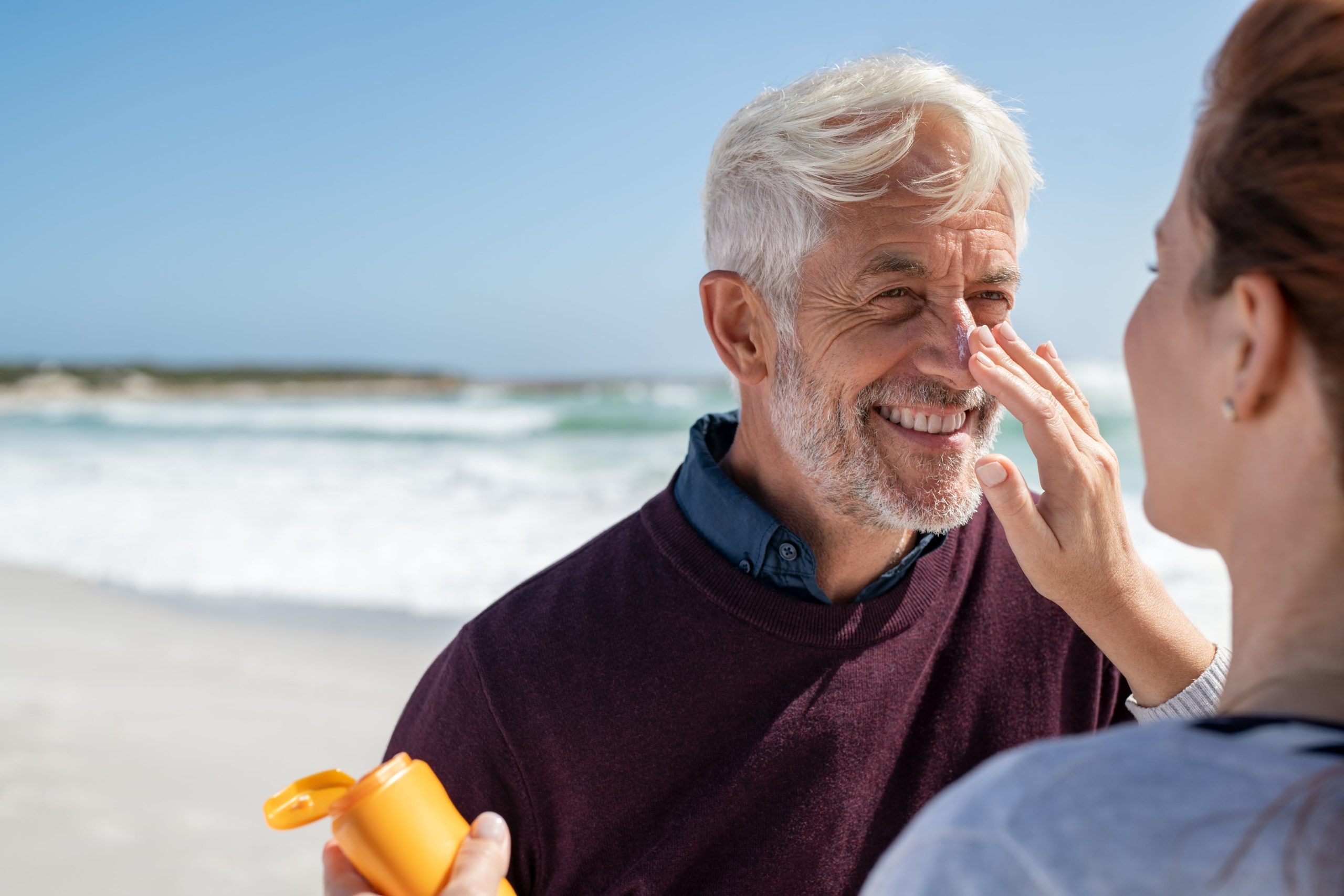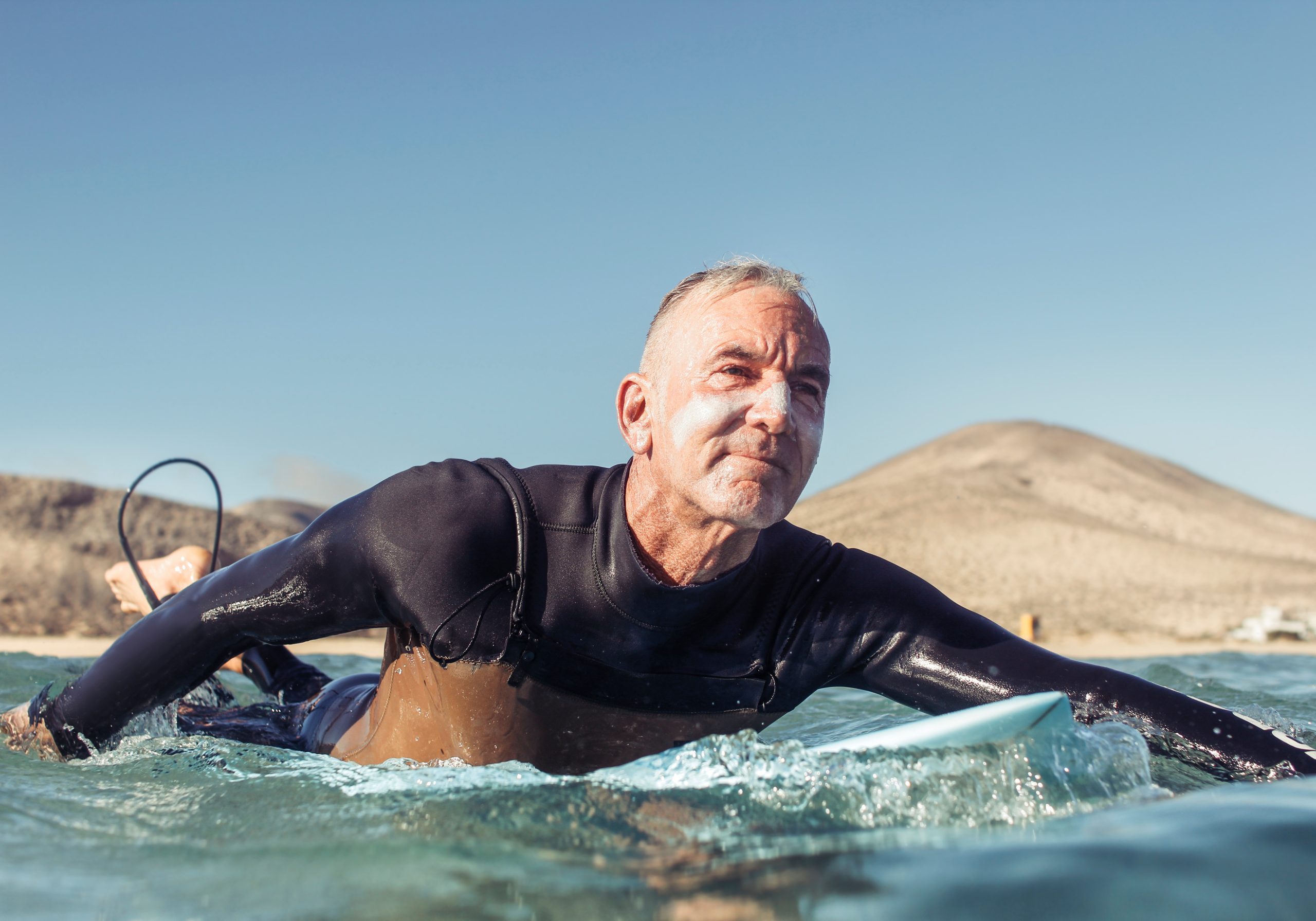At the Skin Cancer Clinic, we prioritise your skin health and safety. Protecting your skin from the harmful effects of the sun is paramount, and sunscreen plays a vital role in preventing skin damage and reducing the risk of skin cancer. Here’s a comprehensive guide to understanding sunscreen use, effectiveness, and the different types available:
Maximising your sunscreen protection
The Importance of Sunscreen:
Sunscreen is a protective barrier that shields your skin from the sun’s ultraviolet (UV) radiation, which is a leading cause of skin damage, premature aging, and skin cancer. Regular use of sunscreen can significantly reduce your risk of developing harmful skin conditions.
The Effectiveness of sunscreen:
The effectiveness of sunscreen is measured by its Sun Protection Factor (SPF) rating and its ability to block both UVA and UVB rays. UVA rays can cause long-term skin damage, while UVB rays are responsible for sunburn. A higher SPF indicates increased protection against UVB rays. It’s important to note that no sunscreen can provide 100% protection, so it’s recommended to combine sunscreen use with other protective measures like wearing sun-protective clothing and seeking shade.


Types of Sunscreen:
1. Chemical Sunscreens:
How they work: Chemical sunscreens contain organic compounds like avobenzone, octisalate, and oxybenzone. These compounds absorb UV radiation and convert it into heat, which is then released from the skin.
Pros:
Lightweight and often blend well into the skin.
Suitable for daily use and can be applied under makeup.
Available in a wide range of formulations, including lotions, gels, sprays, and even cosmetics.
Offer broad-spectrum protection when formulated correctly.
Cons:
Some individuals with sensitive skin may experience irritation or allergies to certain chemical filters.
May require 15-30 minutes to become effective after application.
Need to be reapplied more frequently, especially after swimming or sweating.
2. Physical Sunscreens:
How they work: Physical sunscreens contain active mineral ingredients, typically zinc oxide or titanium dioxide. These minerals create a physical barrier on the skin’s surface that reflects and scatters UV radiation away from the skin.
Pros:
Provide immediate protection upon application.
Less likely to cause skin irritation or allergies, making them ideal for sensitive skin.
Offer broad-spectrum protection against UVA and UVB rays.
Long-lasting and more stable in sunlight.
Cons:
May leave a white or chalky residue on the skin, although newer formulations are designed to be more cosmetically appealing.
Can be thicker and heavier on the skin compared to chemical sunscreens.
Limited availability in various formulations compared to chemical sunscreens.


3. Broad – Spectrum Sunscreens
How they work: Broad-spectrum sunscreens are designed to provide protection against both UVA and UVB radiation. They typically contain a combination of chemical and/or physical filters to ensure comprehensive coverage.
Pros:
Comprehensive protection against a broad range of UV radiation, reducing the risk of various types of skin damage.
Suitable for daily use in various environmental conditions.
Available in a wide range of SPF levels to cater to different needs.
Cons:
Some broad-spectrum sunscreens may contain chemical filters that can cause skin irritation in sensitive individuals.
4. Water-Resistant Sunscreens:
How they work: Water-resistant sunscreens are formulated to maintain their effectiveness even when exposed to water or sweat for a certain duration. They often contain additional ingredients to help the product adhere to the skin.
Pros:
Ideal for outdoor activities, swimming, or heavy workouts.
Maintain their protection even when you’re in the water or sweating.
Available in various SPF levels and formulations for different preferences.
Cpons:
Still require reapplication after swimming, excessive sweating, or towel drying.
The term “water-resistant” is not synonymous with “waterproof,” so regular reapplication is essential for continued protection.
Remember that the choice of sunscreen type often depends on your skin type, sensitivity, and specific needs. Consulting with a skin cancer doctor can help you select the most suitable sunscreen for your individual requirements and ensure you’re adequately protected from the sun’s harmful rays.


Application Tips:
Apply sunscreen generously to all exposed skin areas, even on cloudy days.
Apply sunscreen 15-30 minutes before sun exposure to allow proper absorption.
Reapply every two hours or more frequently if sweating or swimming.
Don’t forget commonly missed areas like the ears, back of the neck, and tops of feet.
Personalised Recommendations:
Visit our Skin Cancer Clinic for personalized recommendations based on your skin type, lifestyle, and specific needs. Our experienced skin cancer doctor will guide you in choosing the right sunscreen and developing a comprehensive sun protection plan.
Prioritize your skin health by incorporating sunscreen into your daily routine. Contact us today to schedule a consultation and take a proactive step towards safeguarding your skin against sun damage and skin cancer. Your skin deserves the best care, and we’re here to provide it.
BOOK NOW
Our handpicked team of doctors, nurses and health professionals are here to make a meaningful difference to your life, at every stage of your life.

